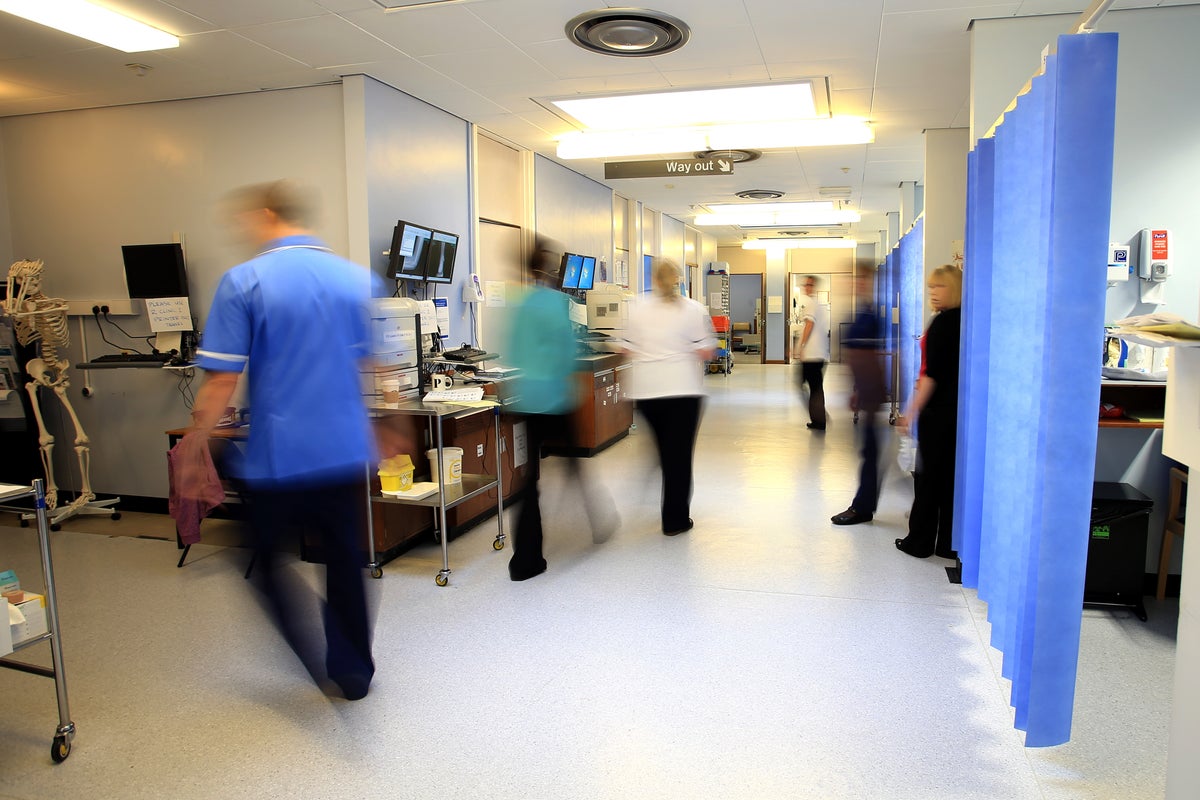Doctors at the British Medical Association (BMA) have condemned the Supreme Court’s ruling on biological sex, dubbing it “biologically nonsensical” and “scientifically illiterate”.
The union branch representing resident doctors – made up of around 50,000 medics previously known as junior doctors – passed a motion on Saturday criticising the judgement, which ruled that trans women are not legally women under the Equalities Act.
Politicians have said the judgement – which means that transgender women with a gender recognition certificate can be excluded from single-sex spaces if “proportionate” – provides clarity, while gender critical campaigners have hailed it as a victory for biological women.
However, the doctors argued that a straightforward binary divide between sex and gender “has no basis in science or medicine while being actively harmful to transgender and gender-diverse people”.
The union branch said it “condemns scientifically illiterate rulings from the Supreme Court, made without consulting relevant experts and stakeholders, that will cause real-world harm to the trans, non-binary and intersex communities in this country”.
It is understood the BMA’s official position will not be decided until a conference in June.
The motion, first seen by The Times, will spark concern that the medical profession could seek to obstruct the implementation of new NHS guidance on trans patients and single-sex spaces.
Last year, the union became the only medical organisation in the country to reject the findings of the Cass Review, an independent review into gender identity services for young people in the UK. The BMA also called for a ban on prescribing puberty blockers for under-18s to be lifted.
Its latest motion comes amid growing pressure on the equalities watchdog to withdraw its interim guidance on single-sex spaces in the wake of the Supreme Court ruling, after campaigners dubbed it a “bigoted attempt to segregate trans people in public spaces”.
The Equality and Human Rights Commission (EHRC) has been accused of breaching trans peoples’ rights, with campaigners saying it not only forces them into inappropriate spaces but it also risks outing them.
Interim guidance published by the equalities watchdog in the wake of the ruling says that trans women “should not be permitted to use the women’s facilities” in workplaces or public-facing services like shops and hospitals.
But it also says that “in some circumstances the law also allows trans women (biological men) not to be permitted to use the men’s facilities, and trans men (biological women) not to be permitted to use the women’s facilities”.
It is unclear what these circumstances are or who is expected to make such decisions.
While the guidance adds that “trans people should not be put in a position where there are no facilities for them to use”, trans activist and model Munroe Bergdorf dubbed it a “tool of humiliation designed with the intention of stoking the escalating flames of British transphobia”.
Meanwhile, Steph Richards, CEO of trans campaign group Translucent, told The Independent that the guidance is likely to force trans people to out themselves, which she said would be in breach of article eight of the European Convention on Human Rights, which guarantees the right to respect for private life.
She said: “Let’s say there is a trans woman working in an office in London somewhere, and the company turns around and says, ‘You can no longer use the female loos’, and perhaps only one or two people know that she’s a trans woman.
“If she suddenly no longer goes in the ladies’ loo and she trots off four floors down to find a gender neutral loo, that is outing her, and that is a violation, in my view, of article eight of the European Convention on Human Rights.”
Helen Belcher, chair of campaign group TransActual, said officials have “clearly not thought through any of the vast and disturbing consequences raised by the Supreme Court ruling”.
The EHRC guidance comes after the prime minister said he no longer believes trans women are women in the wake of the ruling, which he said brought clarity to the situation.
The prime minister has since said the government’s approach is to “protect single-sex spaces based on biological sex” and “ensure that trans people are treated with respect and… dignity in their everyday lives”.
A BMA spokesperson said: “Attendees at the BMA’s resident doctors conference voted to show their opposition to the Supreme Court ruling on Saturday. However, BMA-wide policy is set at the Annual Representative Meeting (ARM), with the next meeting coming in June.
“The BMA respects trans patients’ dignity, autonomy, and human rights and continues to believe that trans doctors, NHS workers and patients deserve dignity, safety, and equitable access to healthcare and healthcare facilities.”
The Department for Health and Social Care has been contacted for comment.

